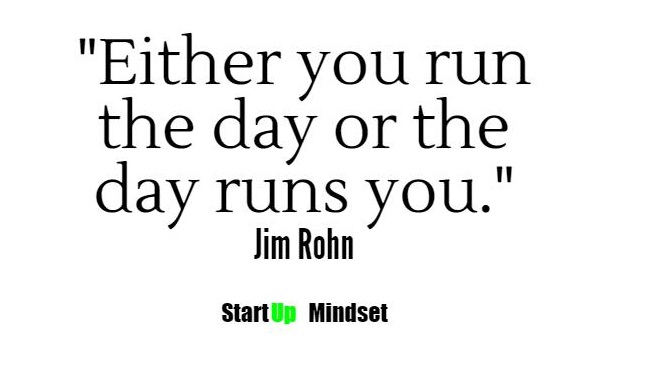You have a few business leads that you just haven’t reached out to yet. You know your business should have a Twitter profile but you’ve put off setting it up. You know you should have reached out to that distributor weeks ago, but you are sitting on your hands. There was a really good book that was recommended to you on how to grow your business, but you have put off reading it. Why?
There are a lot of reasons why things don’t get done with your business; mismanaged time, limited resources, lack of capital, etc. Sometimes, there is little that can be done with uncontrollable circumstances. But the new season of Stranger Things should not be one of the reasons your business is not growing. No matter how awesome the show is.
If you are a new entrepreneur and are fighting the beast of procrastination, you are not alone. This is proved by the fact that on platforms such as Udemy, almost one million people are taking courses on project management hoping to fight procrastination and become better versions of themselves. So you are definitely not alone. New business owners and entrepreneurs typically have a harder time completing multiple projects. They are prone to procrastinate more due to the uniqueness of running a new business. There is no boss telling you what to do and when to do it. That freedom, coupled with inexperience and a little bit of fear, can make anyone procrastinate.
In this article, we will give you some tips on how to battle procrastination so that you can move your venture in the right direction.
To know who your real enemies are, you have to learn what makes you end up with procrastination. By addressing the issue, you will know why you end up not doing what you need to do.
Why we procrastinate
There are many reasons why entrepreneurs procrastinate. They can range from simple indecision and avoiding an unpleasant task, to attention deficit hyperactivity disorder (ADHD) and depression. In this section, we will look at some of the more common reasons why entrepreneurs procrastinate.
1. Procrastination has become a habit.
Procrastinating for extended periods of time can cause the act of procrastination to become a habit. This means that instead of procrastinating on occasion, the delaying of certain activities becomes your mode of operation.
2. Lack of Interest
There are things that you have to do for your business that just don’t excite you. That’s why you end up procrastinating, because you are lacking interest in the task at hand. Tasks such as invoicing, cold calling, and accounting may never bring you joy. Solutions to these types of tasks may be better delegated to a member of your team.
3. It’s Hard and Overwhelming
If you are face to face with a hard task, you can easily get overwhelmed. You will end up putting it on hold, since you think that there’s no way you can manage to do it.
4. Doesn’t Makes Sense
It is common to procrastinate doing something that is outside of your skill set. It’s hard to do something that you can’t understand. Try to research further about your chosen business so that you can understand what’s going on.
5. It’s Frustrating
There are things that you have to do, but it seems that it makes you frustrated. It’s a great excuse not to do it, so you don’t have to feel this way anymore. But if it’s an essential part of your business, try to like it. If you don’t do anything about it, you will end up being more frustrated not being able to do what you have to do.
6. You Fear Failure
A fear of failure can cause individuals to put off doing tasks and delay taking risks.
7. Perfectionism
Perfectionists often procrastinate because of the need for perfect conditions in order to begin, and perfect outcomes once completed.
8. Indecisiveness
Not being able to make a decision can often cause entrepreneurs to put off tasks and projects. This can be detrimental to a business. Especially in industries that are fast moving.
9. Overly distracted
Being overly distracted can make indecisiveness worse. Having too many distractions makes it harder to focus on what is the most important at any given time and aids in the procrastination of vital actions.
Rank your tasks in order of importance
One of the things that I habitually procrastinated on was answering emails. When you get a few emails in per day, answering them is not a big deal. But as my business grew, so did the number of emails.
But unlike my personal emails, just about all of the emails I was receiving per day needed to be answered eventually. So, for a long time, I would spend hours on emails every day. To make things worse, I somehow believed that spending more time answering emails from my phone would help.
If I was away from my computer, I would take every free second to answer emails on my phone. At lunch, before my workout, right before bed, anytime I had the opportunity, I would log on to see if there was something that needed to be dealt with immediately.
Then, one day, I had had enough. Enough of checking emails 5 times per hour. Enough checking emails first thing in the morning and on weekends. I was sick of it. My frustration led to procrastination as I began to dread opening my emails.
Eventually, I decided to solve my email problem once and for all. I took some time away from my business to figure out how to better operate the startup. The goal was to run the business more smoothly and much more efficiently.
I took the time to look at everything I did in a week and in a month. Then, I ranked the most important things that I could do in my startup daily, weekly, and monthly, that would either grow reach or revenue. To my surprise, “answering emails” did not rank in the top 3 on my list.
When I continued to dig into my email conundrum, I found that I was getting the same kinds of emails, and almost none of them needed to be answered right away. Most could wait until the end of the day or at least a few hours.
To solve my problem, I implemented several strategies. One of the key strategies that seemed to work was to do the #1 and #2 most important things on my list BEFORE answering emails. I began eliminating emails in exchange for other daily tasks that would directly affect the growth of my business. I found out the best way to create a daily flow that includes accomplishing things that I would usually put off.
Have short term deadlines for (most) tasks
We all wish that we could have more time to finish the tasks on our to-do list. However, more time is not always the solution. In fact, more time may actually make the problem worse.
Parkinson’s Law states that work expands so as to fill the time available for its completion. This means if you give yourself a week to finish a project, it will most likely take you a week to finish. However, if you give yourself only five days to complete the same project, you will find a way to finish the project in five days.
There’s something about having more time that makes humans want to waste that time instead of applying it to move our lives forward. That is why setting near-term deadlines is so effective. It allows us to use every second available for focused work.
Setting short-term deadlines has a dynamic effect on our productivity. We are essentially tricking our brains into becoming more creative problem solving machines. We create shortcuts and streamline our process. It also benefits those individuals who feel that they work better under pressure.
Keyword is “most”
Keep in mind that setting short term deadlines for all tasks can be counterproductive. Bradley Staats, associate professor at the University of North Carolina Kenan-Flagler Business School believes that setting only short term deadlines doesn’t leave time for “slack” time – the period of so-called wasted time that helps us come up with innovative ideas and solutions, Staats explained to the BBC:
“Without that slack, we’re likely to see less creativity and less innovation,” he said. “There’s a chance that what we throw out [by working quickly] was important to the effectiveness or the solution.”
Learn to balance setting long term and short term deadlines to your various projects, and you will see your productivity increase and your tendency to procrastinate decrease.
Practice Microproductivity
In a 2016 research study published by the Association for Computing Machinery a system was presented that decomposes the task of writing into three types of microtasks. The purpose of the publication was to observe the effects of collaborative writing with microtasks and its impact on collaboration among writers with context and investment in the writing project. Essentially, collaborative writing can be broken down into three steps: 1) generating ideas, 2) labeling ideas to organize them, and 3) writing paragraphs given a few related ideas.
This idea of microproductivity can be applied to reducing procrastination. I actually used this method when writing this article and it saved me about a half day’s work. I also practiced micoproductivity throughout my work week, and it seemed to help me pace myself.
Here is how to begin practicing microproductivity:
Step 1. Identify/brainstorm all tasks and ideas
- While breaking down tasks and brainstorming ideas, try to keep in mind that not all ideas should be pursued right away and not all tasks are urgent. When creating a microproductive strategy, you can decide to tackle any task or job you want, but I recommend you start with the most vital.
Step 2. Label your tasks
- The second step is to label your task based on what your role is in your business. In our course, Stop Thinking Like an Employee, we explained in more detail some ways to label your weekly tasks and showed you how to organize your week using a similar method. By labeling your tasks by category or activity, you minimize the mental clutter that is created. This gives you a clearer picture of what needs to be done and creates a less overwhelming feeling overall.
Step 3. Complete each task by label or category in stages
- Now it is time to take action. Create steps for each task on your list. Then begin to complete those items one-by-one. If your procrastination was due to feeling overwhelmed, you will find that the overwhelming feeling begins to subside.
Use 15 Minute, 30 Minute, and 1 Hour Sprints
One of the reasons why tackling some unpleasant tasks is difficult is because we anticipate the pain involved. We dwell on all of the problems we may face or the stress involved. This is especially true when dealing with difficult tasks. We essentially have nothing to look forward to which makes us delay even starting.
That is why splitting your work time into smaller intervals can improve productivity and reduce the frequency of procrastination. By using work sprints, you allow yourself the opportunity to work for a fixed period of time with a break.
Step away
I recently worked a 15 hour day filled with mentally laboring tasks. These days, I try not to make it a habit of working extremely long hours but sometimes they are unavoidable. I felt good about how the workday went and the level of focus I was able to keep throughout the day. I ended the day still filled with energy and enthusiasm.
The next day, however, was a little different. Even though I had energy and desire to work, my focus was not there. Three hours into my workday, I hit a wall. I couldn’t stay focused, and I could feel my decision-making mental muscle weakening.
The issue was that I needed to work another long day in order to make it possible to take an upcoming mini-vacation. I was able to push through the day and succeed by taking more frequent breaks. For every one hour that I worked, I took a 20-30 minute break. During these breaks, I would call friends and family, take walks, or watch a short video on YouTube.
Constantly thinking about and working on a task is overwhelming. When we work for longer hours, we tend to feel tired and suffocated, and this can fuel procrastination. Oftentimes, we become more productive when we let go. Stepping away from a strenuous task enables you to hit the restart button on your productivity.
Stop multi-tasking and keep your sanity
Multi-tasking, in principle, sounds like a good idea; do many things in a short amount of time. But studies have shown over and over that multi-tasking is a myth. Instead, what you are actually doing is task switching. The lack of intense focus on one thing is actually making you less productive.
When solo entrepreneurs establish startups, they are made to believe that multitasking is the best way to get multiple tasks accomplished. Contrary to this, multitasking may not always work, as it allows entrepreneurs to put less-enjoyable tasks on hold and mainly focus on those that they love doing. However, time blocking is a reliable method that allows entrepreneurs to properly plan how they will spend their time.
This is done by planning out all the tasks that should be completed on a particular day. The tasks are then divided into 15-minute blocks that ensure that no time is wasted. Referred to as the Pomodoro Technique, working in time batches is a sure way to avoid procrastination. There are numerous apps, such as Time Doctor, that enable entrepreneurs to get started with time blocks. The use of time blocks is not only advantageous in running a business, but also in everyday life.
Entrepreneurial procrastination has always been credited to having too many distractions in the workspace. It’s imperative to stay focused at all times. This can be done by uninstalling any apps from websites that do not pertain to business. For instance, entrepreneurs who have social media applications on their work computers may choose to procrastinate tasks because they are chatting with friends and family.
Use momentum
It is very easy to be swayed away from tasks, but learning to stay focused means that you should always stay on the right track. An object in motion stays in motion. In other words, entrepreneurs should remain focused on their professional tasks until they complete them.
Once you begin to take action, use that momentum to complete other tasks and projects that you may have been putting off. When fighting procrastination, momentum, motivation, and clarity of what needs to be done are your best friends. The worst time to try to fight procrastination is when you are at a standstill.
Build on your small victories daily. Over time, these consistent actions will create new habits that will help override your procrastination habit.
Reward yourself after meeting a goal
Entrepreneurs have a habit of focusing on tasks and project that interest them and procrastinating on those that do not. Offering yourself incentives will motivate you to complete all the tasks with equal enthusiasm. The incentives may include rewarding yourself with personal time or an extra hour of entertainment. Success does not have to be meeting 100% of your goals; even achieving 80% of your goals should be considered successful.
Form a mastermind group
When I first started my business, I had a difficult time doing some of the things that I knew I should be doing. One of my friends asked me to meet with him and a few of his friends who were also entrepreneurs. The meetings became a regular event. We developed accountability systems to ensure that we would do the things that would make our businesses grow.
Most times, new and existing entrepreneurs find it easy to procrastinate on tasks because they do not have anyone to report to. After all, they are self-employed. Entrepreneurs rarely have managers who make sure that things are getting done. While there may be no one to keep them in line, they may decide to find accountability partners. Those who work from home may ask those around them to check on what has been done in an entire day of work or ask colleagues in the same field to call in and check on their progress. This ensures that they are able to fight procrastination at all times.














Pingback: How to Get Out of a Productivity Slump
Pingback: How to Get Out of a Productivity Slump | Blockchain Consultants
Pingback: How to Get Out of a Productivity Slump | Biz Builder Mike
Pingback: How to Get Out of a Productivity Slump - StartUp Mindset
Pingback: 12 Productivity Tips for Entrepreneurs & Business Owners - StartUp Mindset
Pingback: 4 signs why you shouldn't be an entrepreneur - Entrepreneurs Collective
Pingback: Do You Fear Your Own Success? 6 Tips to Get Passed Your Fear - StartUp Mindset
Pingback: How to Have a Crazy Productive Week - ColorMag Entertainment News
Pingback: How you can Have a Loopy Productive Week - Trader Sensation
Pingback: How to Have a Crazy Productive Week - StartUp Mindset
Pingback: Did the Pandemic Inspire Millennials to Work on Themselves? | Buzarr.com
Pingback: Did the Pandemic Inspire Millennials to Work on Themselves? - StartUp Mindset
Pingback: 8 Ways to Fight Entrepreneurial Procrastination | Urban Bluprint
Pingback: How to Launch a Winning Product
Pingback: 7 Habits of Unsuccessful Entrepreneurs - Startup MindsetStartup Mindset
Pingback: 5 Surprising Strategies That Will Supercharge Your Productivity - Startup MindsetStartup Mindset